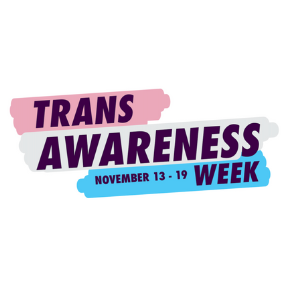
Supporting transgender, non-binary and gender-diverse foster carers and adopters
In recent years, there has been a growing recognition of the diversity of families and carers involved in adoption, fostering, and kinship care. Among these families are transgender (trans) parents and carers who play a crucial role in providing stable and nurturing environments for children. In this blog, we explore some of the challenges and opportunities faced by transgender individuals in this context.
Social workers can play a pivotal role in advocating for transgender families within the child welfare system, making sure their distinctive needs are recognised and adequately addressed. It is key that transgender parents, carers and children are given equal opportunities and are treated with respect. Kinship teams, fostering services and adoption agencies can support this by creating an inclusive environment that values diversity and recognises the unique strengths that transgender parents and carers bring to the table.
Trans individuals who are seeking to adopt should undergo comprehensive preparation tailored to their specific needs. Social workers need a nuanced understanding of trans issues, including legal rights, medical considerations, and the provision of emotional support. It is also crucial that members of adoption panels receive training to ensure impartial and unbiased assessments of transgender applicants, to prevent discrimination based on gender identity. Post-approval, ongoing support for trans parents and caregivers is important. This support can include counselling, participation in peer support groups, and access to resources specifically tailored to the nuances of trans parenting.
CoramBAAF recently hosted an event in collaboration with New Family Social to examine how transgender, non-binary, and gender-diverse adopters can be supported throughout the adoption process. As the number of LGBTQ+ individuals opting for adoption continues to rise, it is essential for adoption agencies and professionals to adjust their approaches to accommodate the varied needs and identities of potential adoptive parents.
During the event, Riley Coles (they/them) - Training Manager at New Family Social - spoke about how exposure to discrimination can lead to trans, non-binary and gender-diverse people expecting to experience discrimination when accessing services. In some cases, this expectation of discrimination can cause prospective adopters to rule themselves out.
Providing inclusive assessments is essential to ensuring that prospective trans and non-binary adopters feel supported, but also that the adoption process is for/ includes them. Practicing habitual inclusivity by stating your pronouns in introductions and communications can help people to feel supported and included, while also recognising we cannot assume a person’s gender identity by how they present themselves.
Riley went on to discuss how being knowledgeable and sensitive to common issues that trans and non-binary people face can strengthen inclusivity in practice. Trans and non-binary people are estranged from their families more commonly than cisgender (cis) people; cisgender is a term used to describe a person whose gender identity corresponds to their sex assigned at birth. Riley encouraged practitioners to recognise that family can be a difficult subject for gender diverse adopters. But also to recognise that non-familial support networks, often referred to as found families, can provide equally strong, long-term and consistent support.
Some trans and non-binary people may find conversations around their gender uncomfortable, or even painful, while others may feel more comfortable in sharing personal details. Offering solutions that allow individuals to maintain their privacy where possible, such as by using the DBS’s confidential service for trans applicants, can be a supportive step during the assessment process for the community. However, where this is not possible, showing compassion to the anxieties around disclosure of identity is crucial to understanding and working with trans and non-binary adopters.
Some other recommendations of support include;
Supporting trans and non-binary adopters in navigating the school environment. Helping them to find schools that are adoption friendly, trauma-informed and welcoming to LGBTQ+ families.
Sourcing inclusive post-adoption/post-placement support. Making sure that existing post-adoption support organisations operate inclusively. This might include ensuring post-adoption support organisations that offer therapeutic support can also offer qualified LGBTQ+ therapists and families' support.
Recognising that LGBTQ+ adopters are a minority within adoption. New Family Social offer peer-to-peer support groups for adopters, foster carers and kinship carers.
Understanding the specific strengths that trans and non-binary people bring as adopters is a way of signalling supportive and inclusive practice:
Advocacy
Many trans and non-binary people have honed and practiced advocacy skills for both themselves as well as their friends and family. These skills can help if an adopted child has specific needs, as parents have experience in negotiating specific circumstance with service providers such as schools and health.
Identity and belonging
Trans and non-binary applicants can have a strong sense of identity and belonging. Members of the LGBTQ+ community have extensive experience in exploring questions of identity in terms of how they might express themselves, or where they fit within a particular community or society.
Community
Many trans and non-binary people are a community-focused. That includes the ability to build and contribute to communities which provide invaluable support to themselves and those around them.
First choice
Unlike many cis-normative couples LGBTQ+ people are often approaching adoption or fostering as a first choice.
Take part in recognising the diversity of families and carers involved in adoption, fostering, and kinship care. We want to share our resources on working with and supporting trans people in adoption, fostering and kinship care. We will continue to develop resources and information for our members. If you have any suggestions of materials you would like to see, please email info@corambaaf.org.uk.
